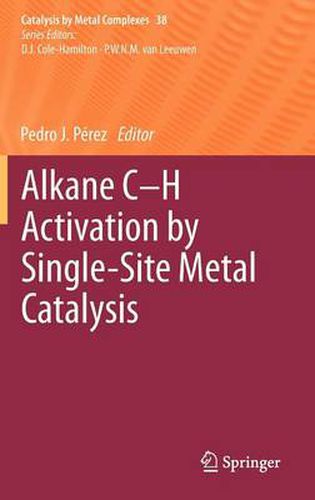Readings Newsletter
Become a Readings Member to make your shopping experience even easier.
Sign in or sign up for free!
You’re not far away from qualifying for FREE standard shipping within Australia
You’ve qualified for FREE standard shipping within Australia
The cart is loading…






This title is printed to order. This book may have been self-published. If so, we cannot guarantee the quality of the content. In the main most books will have gone through the editing process however some may not. We therefore suggest that you be aware of this before ordering this book. If in doubt check either the author or publisher’s details as we are unable to accept any returns unless they are faulty. Please contact us if you have any questions.
Over the past decade, much research effort has been devoted to the design and synthesis of new reagents and catalysts that can influence carbon-hydrogen bond activation, mainly because of the prospect that C H activation could enable the conversion of cheap and abundant alkanes into valuable functionalized organic compounds.
Alkane C-H Activation by Single-Site Metal Catalysis presents the current state-of-the-art development in the catalytic systems for the catalytic trans-formations of alkanes under homogeneous conditions. Chapter 1 offers a comprehensive summary of the main discoveries realized so far. Chapter 2 reviews the so-called electrophilic activation, initiated by Shulpin in the late 60s, and the base for the Catalytica system. Chapter 3 examines the catalytic borylation of alkanes, discovered by Hartwig, whereas chapter 4 provides an updated vision of the alkane dehydrogenation reaction. Chapter 5 covers the oxygenation of C-H bonds, a field of enormous interest with bioinorganic im-plications, and finally chapter 6 presents the functionalization of alkane C-H bonds by carbene or nitrene insertion.
The history of C-H bond activation, and the current research described in this book, highlight the current research and present the reader with an outlook of this field which continues to be explored by an increasingly visionary and enthusiastic group of organic, organometallic, biological and physical chemists.
$9.00 standard shipping within Australia
FREE standard shipping within Australia for orders over $100.00
Express & International shipping calculated at checkout
This title is printed to order. This book may have been self-published. If so, we cannot guarantee the quality of the content. In the main most books will have gone through the editing process however some may not. We therefore suggest that you be aware of this before ordering this book. If in doubt check either the author or publisher’s details as we are unable to accept any returns unless they are faulty. Please contact us if you have any questions.
Over the past decade, much research effort has been devoted to the design and synthesis of new reagents and catalysts that can influence carbon-hydrogen bond activation, mainly because of the prospect that C H activation could enable the conversion of cheap and abundant alkanes into valuable functionalized organic compounds.
Alkane C-H Activation by Single-Site Metal Catalysis presents the current state-of-the-art development in the catalytic systems for the catalytic trans-formations of alkanes under homogeneous conditions. Chapter 1 offers a comprehensive summary of the main discoveries realized so far. Chapter 2 reviews the so-called electrophilic activation, initiated by Shulpin in the late 60s, and the base for the Catalytica system. Chapter 3 examines the catalytic borylation of alkanes, discovered by Hartwig, whereas chapter 4 provides an updated vision of the alkane dehydrogenation reaction. Chapter 5 covers the oxygenation of C-H bonds, a field of enormous interest with bioinorganic im-plications, and finally chapter 6 presents the functionalization of alkane C-H bonds by carbene or nitrene insertion.
The history of C-H bond activation, and the current research described in this book, highlight the current research and present the reader with an outlook of this field which continues to be explored by an increasingly visionary and enthusiastic group of organic, organometallic, biological and physical chemists.